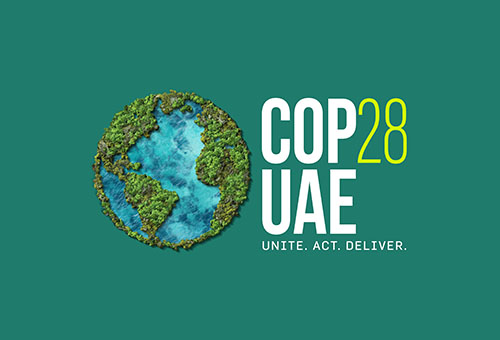Accessing decarbonization technologies–a timely topic
At the COP21 in 2015, delegates from 196 nations negotiated the Paris Agreement, committing to limiting an increase in global temperatures to 1.5°C (2.7°F) over pre-industrial levels. That said, the world’s climate is expected to be at least 2.8°C warmer by 2100 unless vital steps are taken. To get back on track, greenhouse gas emissions will need to be reduced 43 percent by 2030.
The climate change clock is ticking. The challenges to develop novel decarbonization technologies could not be more urgent. The net-zero targets set by governments are aggressive and made even challenging due to pressures from the market and other stakeholders. Developing new technologies need a major shift away from well-established and risk averse mind-sets. There are good reasons for this mind set, for example, the metals industry is highly capital intensive and sustaining margins can be very challenging.
In the process of development of technologies, there will be many tradeoffs which will need to be addressed.
- Technology development versus achieving adequate financial returns for shareholders
- Technology development versus achieving social objectives such as employment
- Technology development versus supply chain and infrastructure constraints
The challenges on decarbonization technologies are not uniform across all sectors. The energy sector has fewer issues with decarbonization because alternatives such as wind and solar power are already relatively mature. In transportation, technologies for electric vehicles have been developed, but investments in the supply chain – mining to battery manufacturing – need to be scaled up very quickly For others, however, particularly the mining and metals sector, the challenges are much more daunting. It needs a complete and overarching transformation of all the process steps and supply chain.
Despite the enormity of the challenges, we see a shift in the mindset in the recent times. Producers are increasingly collaborating with stakeholders to address infrastructure issues such as paying for engineering studies and joint risk sharing, negotiations with governments for financial assistance for technology development, investment grants, etc. In truth, there isn’t time to sit back and wait. It is time for metals and minerals, and other sectors, to start investing in their own solutions.
At this year’s COP28, Hatch experts and other attendees will be discussing three main challenges to decarbonization technologies:
- Investment from industry producers
- Investment from governments to subsidize energy transitions, which in turn will accelerate research and development
- Investment in new talent to develop decarbonization solutions

At Hatch, we are developing those solutions and technologies for clients seeking ways to decarbonize. Hatch has been ahead of the technology curve and has developed the CRISP and CRISP+ technologies, which when combined with Direct Reduction technology offer an alternative route to decarbonize iron and steel production. Hatch has been developing solutions for nuclear small modular reactors to license, complete engineering and commercialization of new technologies. Addressing climate change is a formidable task. Collaborating with a partner like Hatch, which has unparalleled experience and expertise in decarbonization is crucial for implementing effective solutions toward a sustainable future.
COP28 will provide an opportunity to create policy, share ideas, and discuss solutions for global decarbonization. An opportunity to turn climate change into positive change!
We would like to hear about your challenges in achieving a net-zero future by 2050. We are at COP28 and we’re eager to share our experience, expertise, and lessons learned in the climate change arena.

COP28: Changing climate, innovating solutions
- Accessing decarbonization technologies–a timely topic
- Navigating the path to corporate integrity and net-zero commitment
- Meeting the challenge of decarbonizing the world's ports
- Navigating the social seas in the race to net-zero
- Navigating the evolution of sustainable finance
- Investing in what matters: Insights from COP28, part 1

Siddhartha Sengupta
Principal, Investment and Business Planning, Advisory
Sidd has over 20 years of experience of experience covering strategy and transactions support. He is very passionate about decarbonisation challenges and solutions for the steel industry. Prior to joining Hatch, Siddhartha spent several years with Arcelor- Mittal in China and in Kazakhstan. He has presented numerous papers on strategic issues related to metals and raw materials in industry conferences.